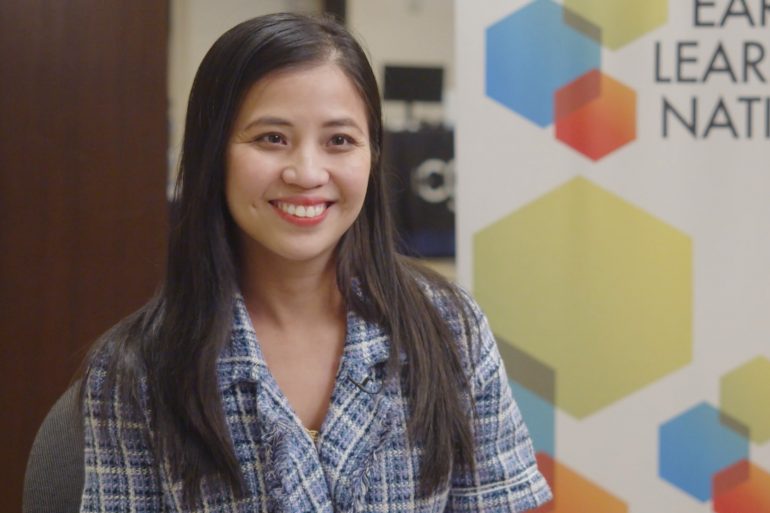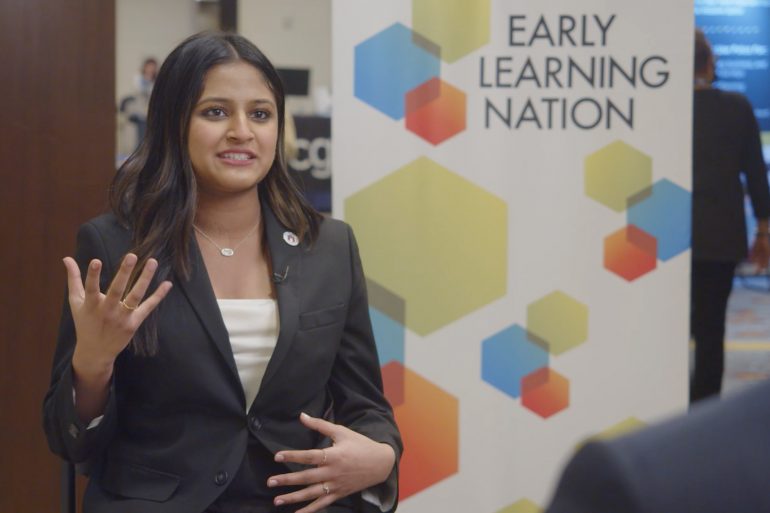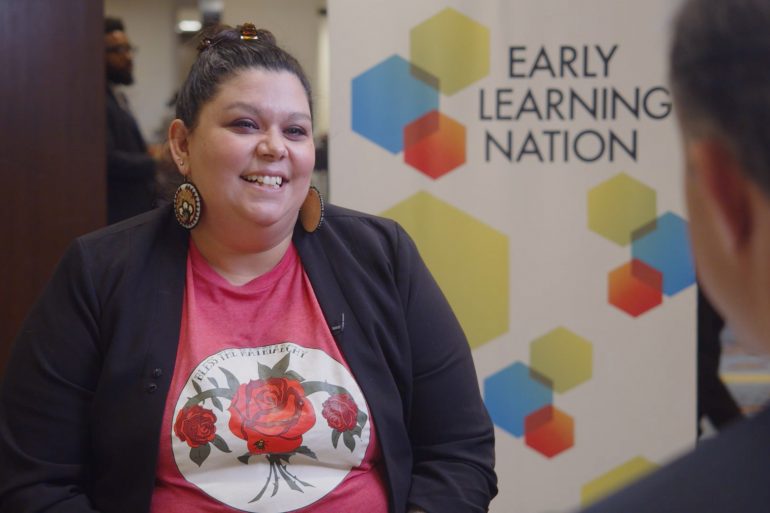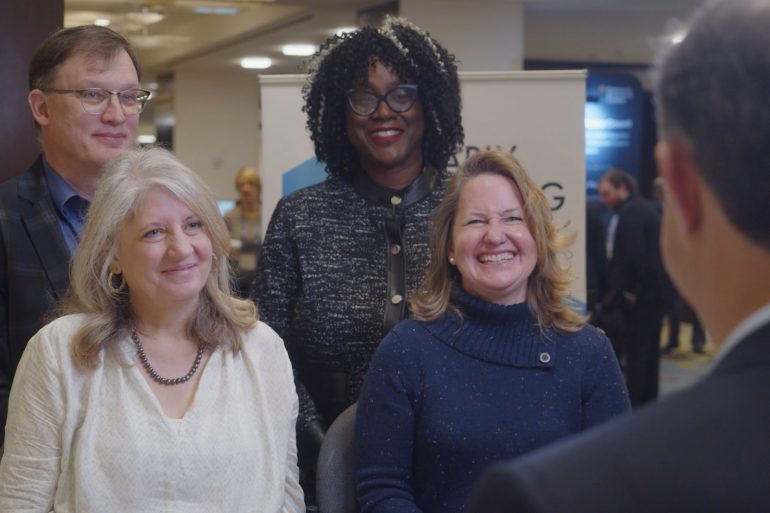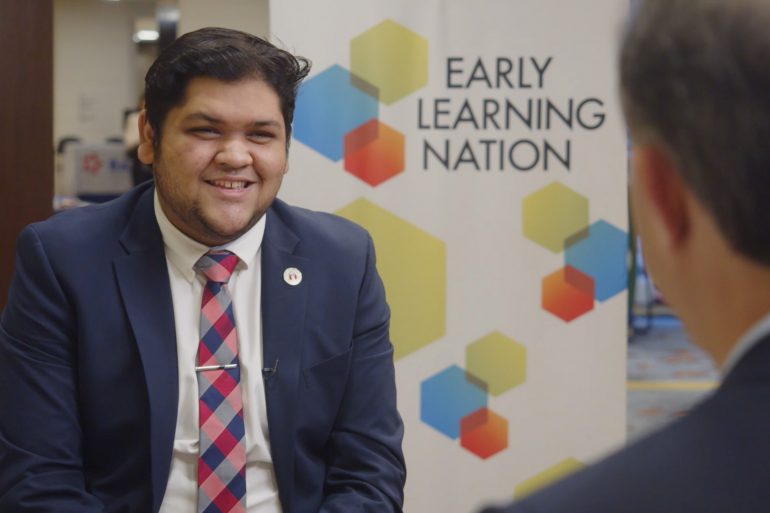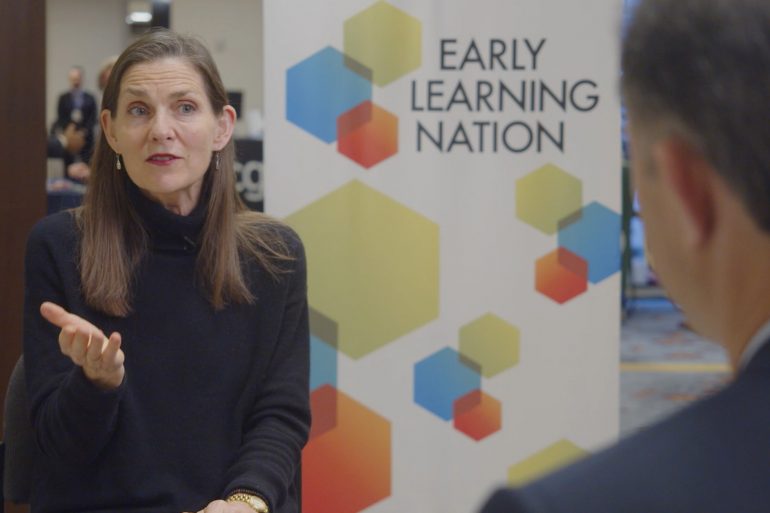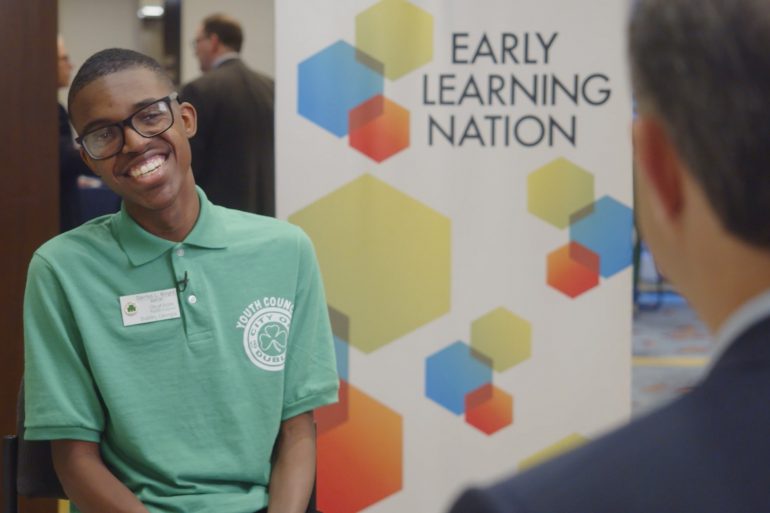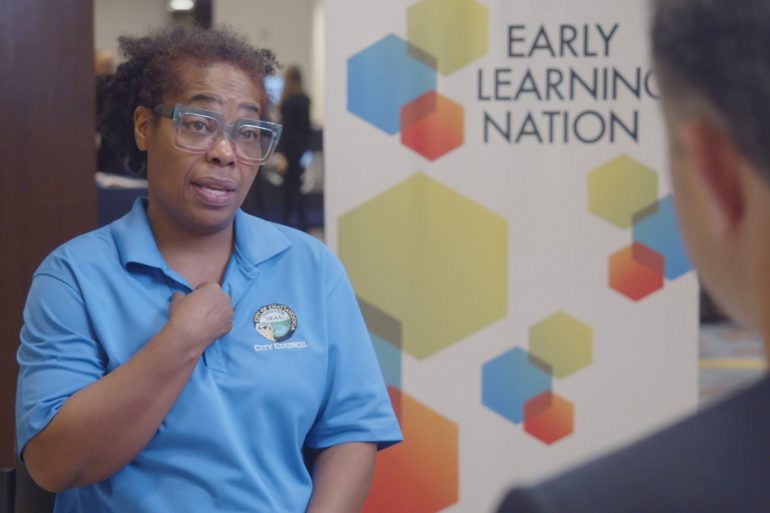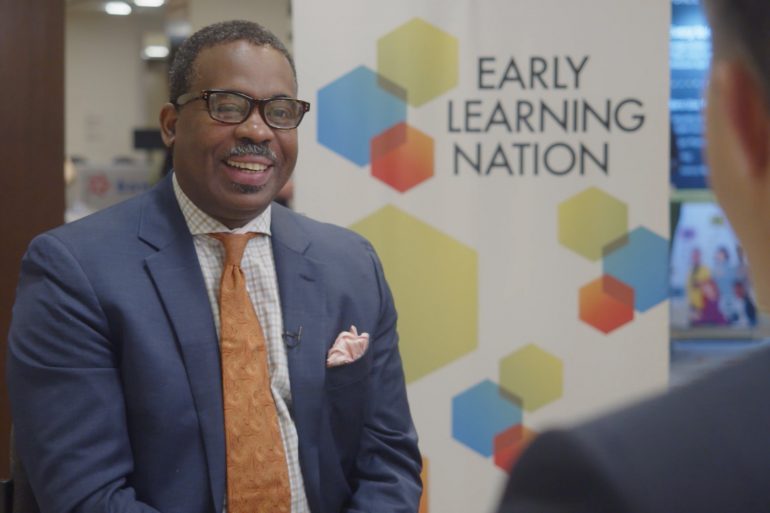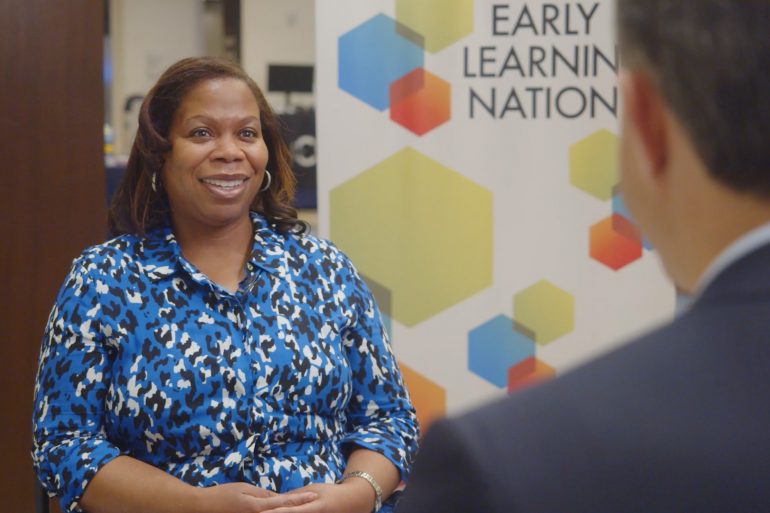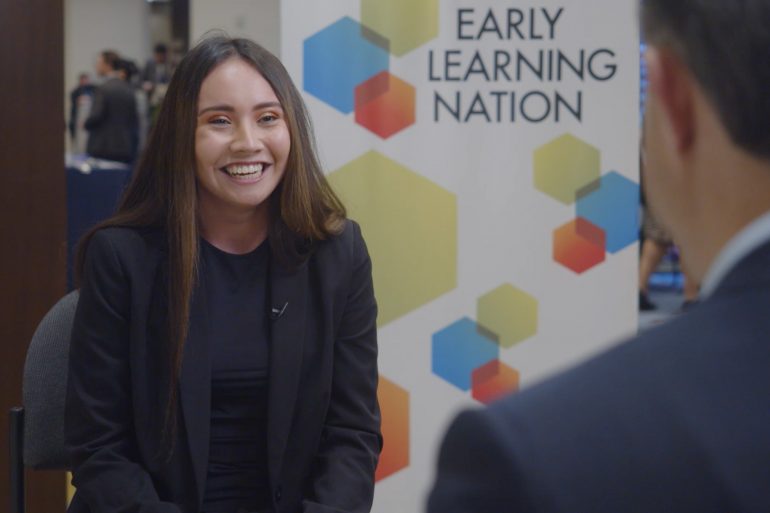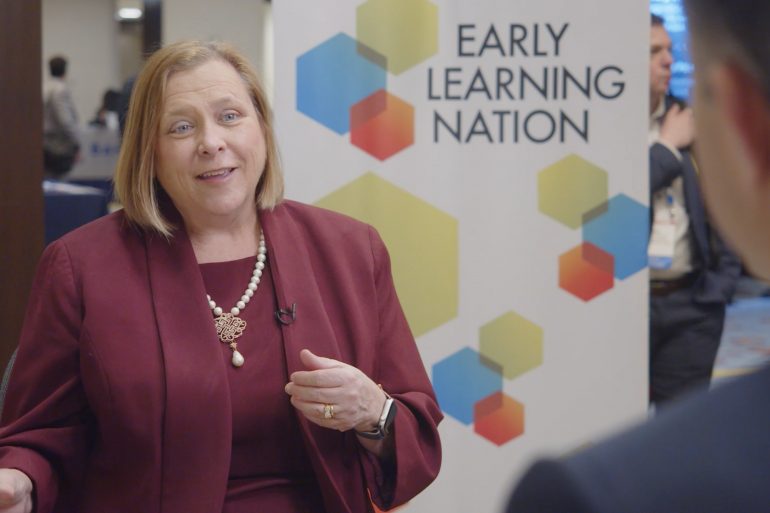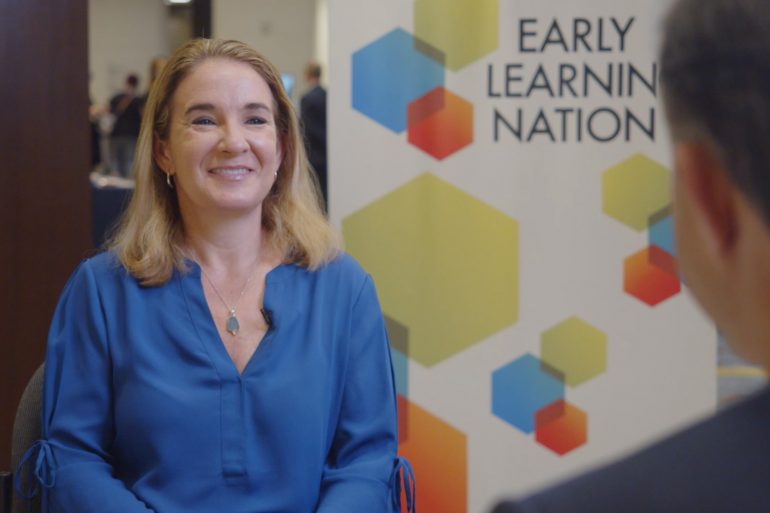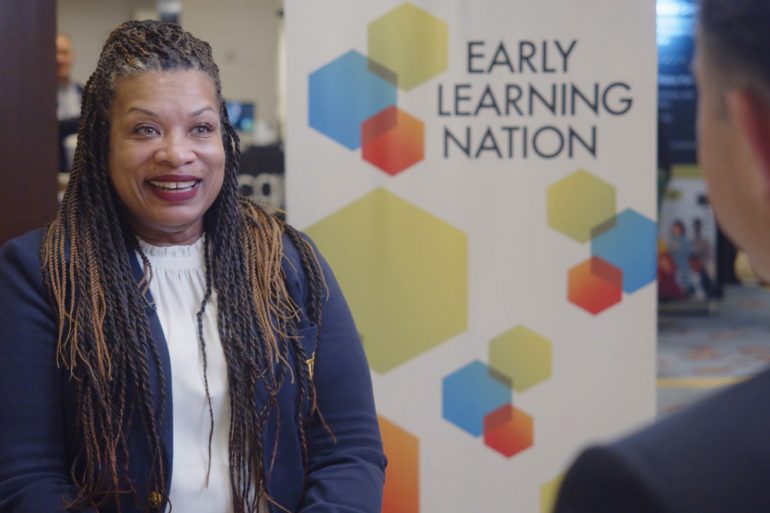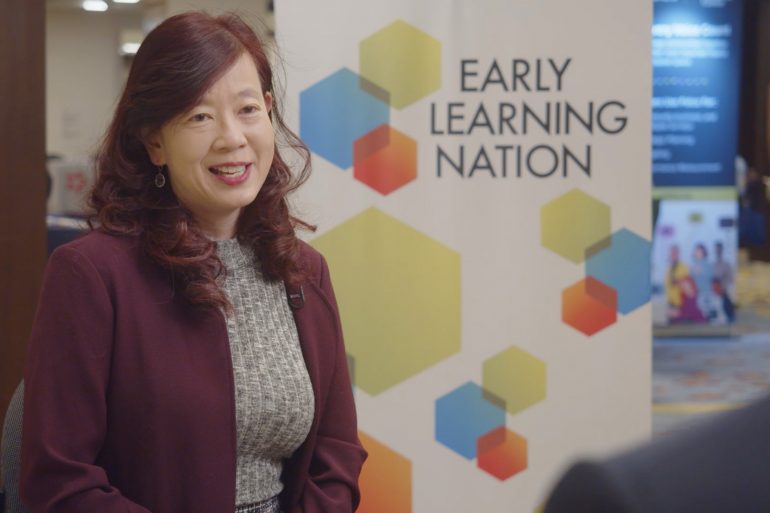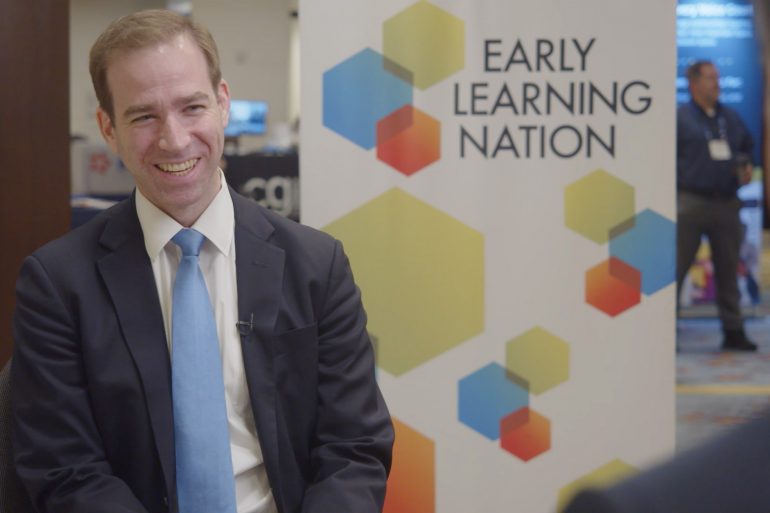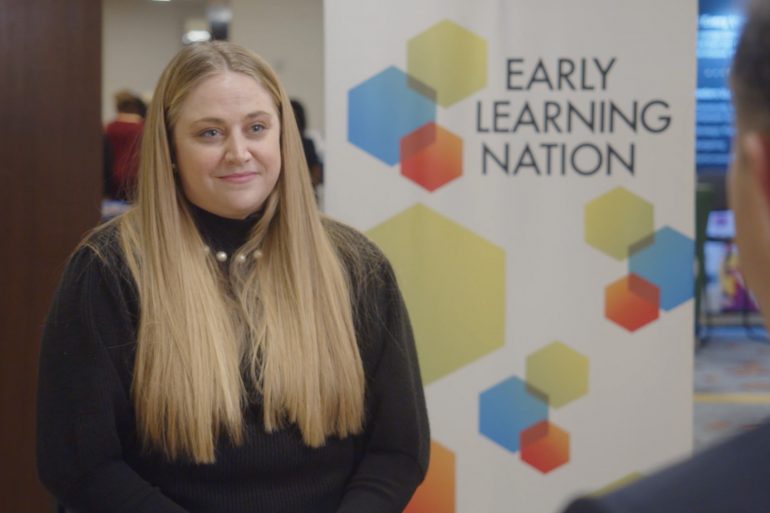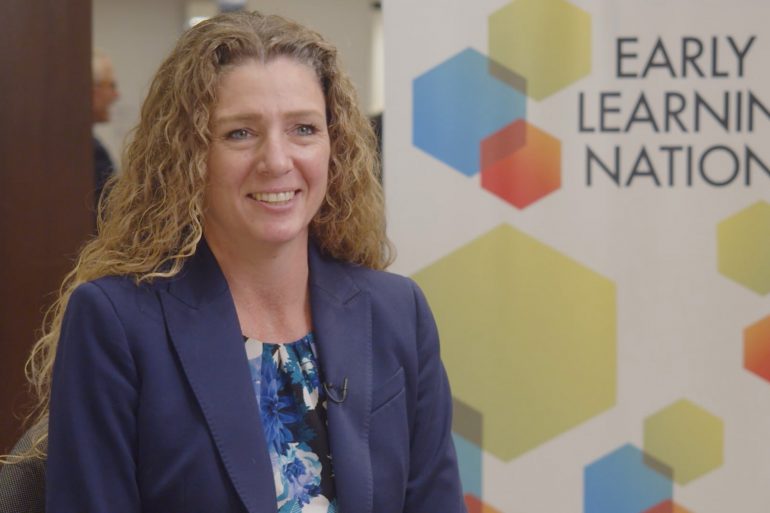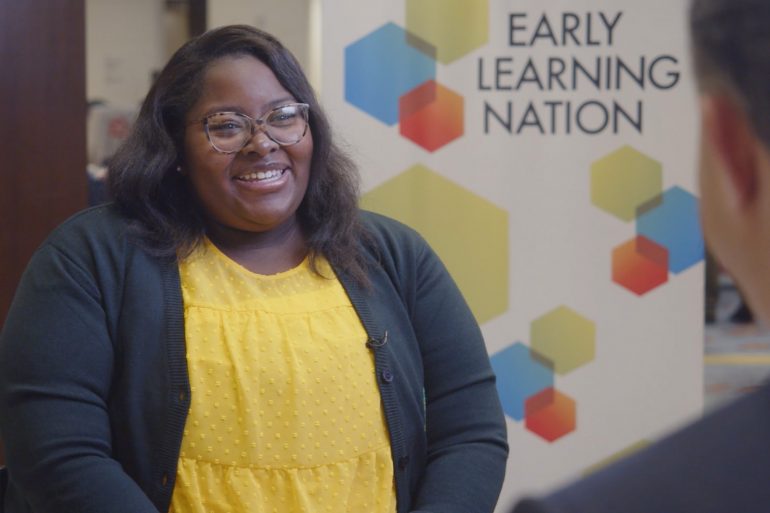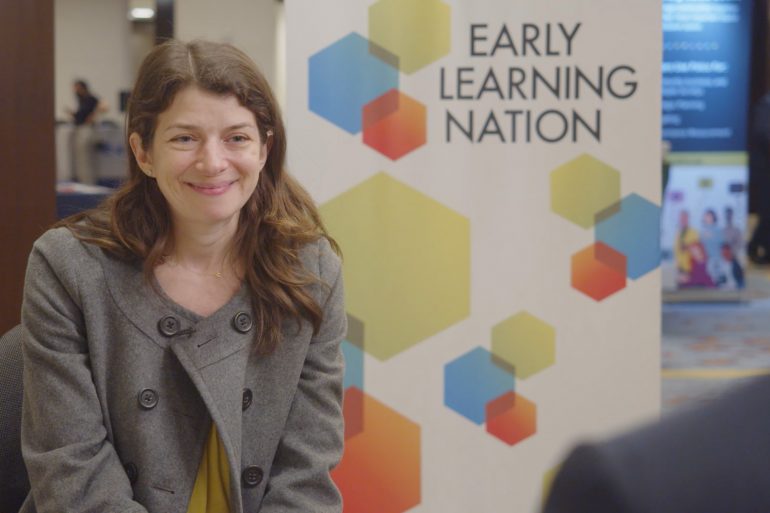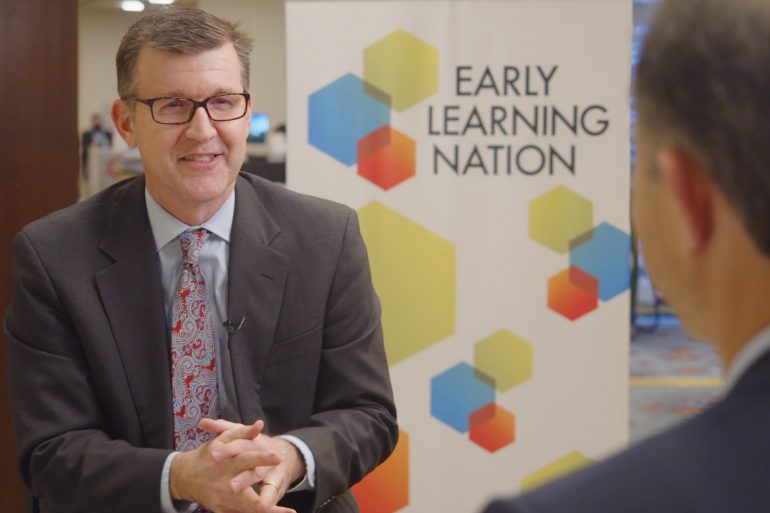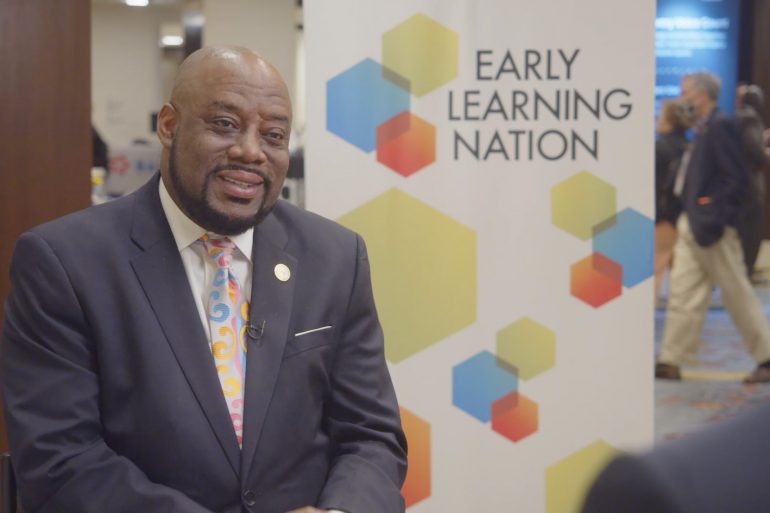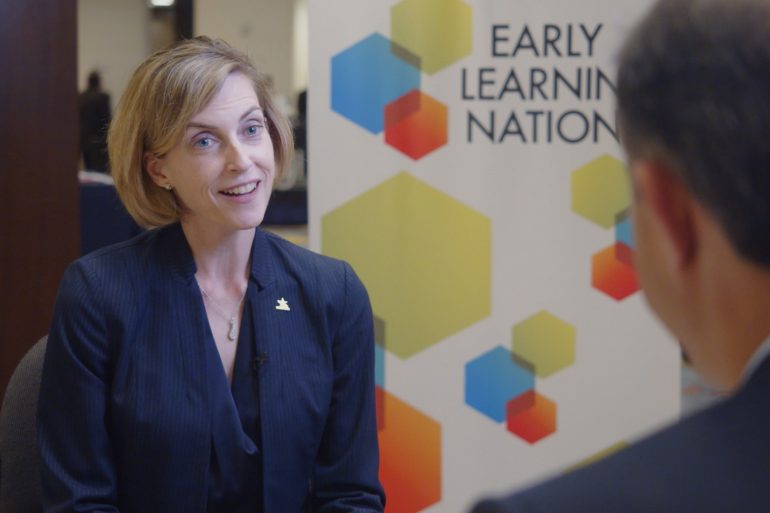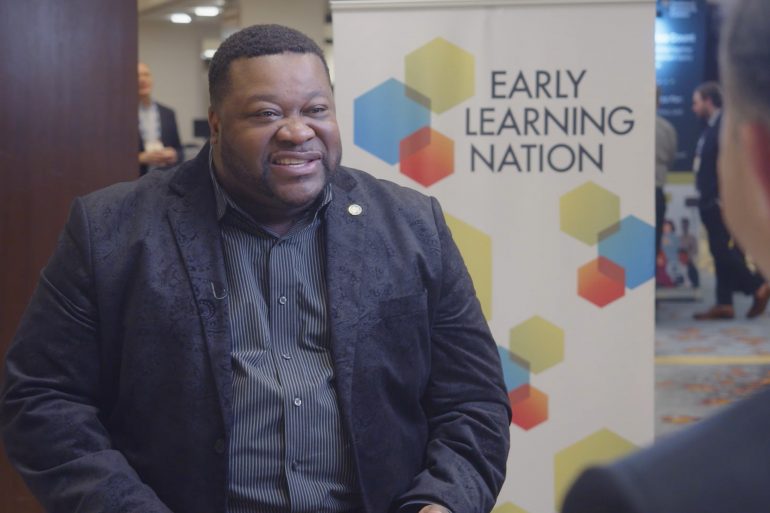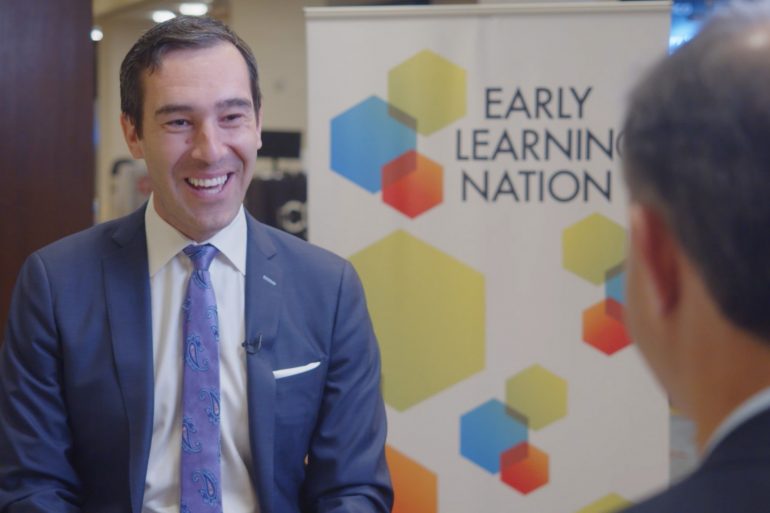National League of Cities, City Congressional Conference, 2022
The 2022 conference marked a return to an in-person event with an impressive slate of speakers including President Joseph Biden, Jr., Speaker of the House of Representatives Nancy Pelosi, U.S. Secretary of Transportation Pete Buttigieg, cabinet members, senior advisors, mayors and city leaders from across the United States.
Watch all the videos together:
Watch and link to each video individually:
For many high school students across the country, the pandemic resulted in Zoom classes, missed milestones and an increase in mental health concerns. As a member of the Austin Youth Council—as well as NLC’s Council on Youth, Education and Families— Ann Vadakkan advocates not just for youth empowerment, but also for youth mental wellness, raising awareness to help reduce any stigma.
April Fournier is not just a Portland (ME) Councilmember, she’s also an early childhood support specialist within an outpatient pediatric clinic. After the child’s medical health visit, Fournier checks in with the parents to provide support on the “social determinants of health”: housing, food and other areas critical to a child’s development.
By creating a community-wide coalition across Austin city and Travis County in 2011— encompassing the public, private and non-profit sectors—Austin/Travis County Success by 6 provides support for families from birth to five. With their new strategic plan—and 38 babies being born every day—the group is trying to improve school readiness overall.
A key part of youth advocacy is making sure the adults in the room are listening and taking action. Avinash Verma explains how youths connect with their communities differently than adults, and what that means in terms of needed resources and support. Avinash also explains how his community engagement has helped fuel is interest in aviation, including a work-learning program at the airport and with NASA.
As part of New America’s Better Life Lab, Brigid Schulte helped drive a landmark report that exposed what’s really happening in America’s child care system – namely, it’s not a system. Instead, “it's a patchwork, it's broken, and it's not working well for anyone.” Schulte calls for us to “begin thinking about early care and education the same way we do about K-12.”
As the City of Dublin (GA) Youth Council Mayor and a NLC Youth Leader, Darrius Knight is working to help adults and youths better understand each other. The key is communication. He also advocates for prison reform.
Demetrus Coonrod’s path to Chattanooga’s City Council had obstacles, including time in prison. But her personal journal also serves as a guiding path for others, showing the power of resilience, belief in oneself and education.
Senior Executive and Director of NLC’s Institute for Youth, Education and Families, Dr. Robert Blaine, says the institute works on many levels: specific programs, cities themselves and the wider population, all to increase outcomes and build more opportunity for children and families. Dr. Blaine’s role also carries an additional benefit: working with the inspiring youth leaders. It’s a blend that requires the skills of an orchestra conductor... and it turns out, Dr. Blaine has those, too.
As American cities rebuild after the pandemic, much of the focus is on infrastructure. For Dr. Tonja Rucker, Director of Early Childhood Success at NLC’s Institute for Youth, Education and Families, that means not only physical needs like roads and bridges, but also the family structure, starting with its youngest members. As Dr. Rucker notes: “If the youngest residents are healthy and doing well, then the rest of things kind of fall into place and families get to be able to meet their needs.”
As an NLC Youth Representative and a member of the Brighton (CO) Youth Commission, Giana Rocha partners with adult leaders to help youth access the tools they need to be involved and make change. One area for impact: Helping peers with mental health issues know that support is always there.
Strong communities begin with strong families. For many new parents, the challenges of parenting can be daunting. As Huong Vu, Family Engagement Specialist at the Boys and Girls Clubs of Dorchester (MA), explains, the group helps parents recognize that they “should be valued as the first teacher of the child and the expert in their own life.”
Kathy Maness has observed and engaged in education from many directions: as a teacher, executive, NLC President, Lexington (SC) City Councilmember and a parent. She knows how difficult Covid has been on early education, including young learners who had to start school without entering an actual classroom. That’s among the reasons Maness calls for local elected officials and communities to lift up their teachers to provide the support needed to build America’s early learning programs to full strength.
One way to improve education: communication. For Pinecrest (FL) Vice Mayor Katie Abbott, that means not only regularly connecting with the school board, but also with students. Abbott co-coordinates the Pinecrest Youth Advisory Council, a group of 24 students in grades 8-12 across public and private schools who engage in government, volunteering and education, tackling issues from the environment to preparing for college.
One of the Kelly Allen Grey’s first actions as a Fort Worth (TX) City Councilmember was to secure a children’s library for her district. That success was just one part of her journey to help drive racial equity in education, starting with early learning. As Grey says: “It takes all of us, even in our uncomfortableness in talking about race and equity, to make sure that we're doing the right thing.”
As Fremont (CA) Mayor Lily Mei notes, for four of the past five years, Fremont has been listed as the happiest city in the U.S. The city also boasts incredible diversity, drawing families across multiple backgrounds and a range of languages. One area where that diversity pays off is in education. With some 35,000 kids and 42 schools, Fremont has focused on building new early learning centers, high-ranking schools and equitable access, including with special-needs pre-K programs.
For years, Hartford (CT) has been recognized as a leading city in early childhood learning. As Mayor Luke Bronin describes, the results come from a committed community, dedicated civic resources, including a Department of Families, Children, Youth and Recreation, with a division specifically focused on early child development – and the willingness to accelerate good ideas no matter where they come from. It starts, he says, by “working closely with families.”
PRE4CLE is Cleveland's approach to expanding high quality preschool access across the city. The program began in 2014 and connected the community, county, school district, teachers, local philanthropy and of course, local government. Now they’re launching So Cleveland Early Learning Spaces, a focused effort to improve facilities in order to improve the learning environment. As Michelle Connavino, PRE4CLE’s Director of Communication & Special Initiatives, explains: It’s all part of Cleveland’s goal to ensure greater access for all three and four year olds throughout the city.
For a community looking to address various social challenges, Vallejo, CA is starting with early childhood learning. As City Councilmember Pippin Dew says, programs such as the new First 5 Center not only help set children for future education success, but also helps families be the most productive they can be.
As an NLC Youth Representative, North Carolina High School junior Ramie Mack has the opportunity to talk with adults, including mayors and city councilmembers. And as she advocates for learning, Ramie wants those leaders to understand that youth face challenges, too. That’s just one reason she advocates for making sure students are part of the conversation when learning is being discussed.
As a Reporting Fellow at New America’s Better Life Lab, Rebecca Gale has covered many aspects of America’s approach to child care. And one thing she knows: it’s complicated. From economics to use cases to the delivery system to funding and beyond, the U.S. has no one-size-fits-all approach. That patchwork leaves too many gaps, and that’s just one reason Gale argues that one way to improve America’s child care system is to improve how journalists report about it.
As President & CEO of the Smarter Learning Group, Ron Fairchild works directly with communities nationwide. He works with foundations, nonprofits and school districts across the country, all to expand educational opportunities for low-income kids and families. As Fairchild describes, getting to continual strong results takes work. But the ability to get there—and the responsibility to try to improve the next generation of outcomes—exists in every community.
Covid arrived and, suddenly, every parent became a teacher. Savannah (GA) Mayor Van Johnson sees the positive: the ability for all of us to better support teachers. Mayor Johnson also sees the need to make up for lost time, and the importance of ensuring that early learning occurs everywhere, from classrooms to churches. That’s why his message to parents is straightforward: childhood learning is “a lifetime investment. It's not a sprint, it's a marathon. It's a four-quarter game.”
As part of what’s called “cradle to career,” Arlington (TX), like many communities, is working to ensure its approach to learning leads to a well-educated workforce. As Mayor Pro Tem Victoria Farrar-Myers explains, that discipline starts with early learning, as young as zero to three, and the Arlington Tomorrow Foundation.
Willie Lightfoot is a Rochester (NY) City Councilmember. He’s also a longtime barber. And it’s in both roles that he has made an impact on early learning. As Lightfoot explains, the time when a child waits for a haircut makes for an outstanding opportunity to read. It’s just one of the lessons one can take from Lightfoot’s chair, including his common reminder to be positive.
Like many urban centers, Baltimore has seen its share of violence. And incarceration. That’s just one reason why City Councilmember Zeke Cohen feels that the way to help people build strong lives begins not when they’re adults, but as children. As Cohen says, “We either invest early on where we know every dollar we spend in the high quality early learning space pays huge dividends down the road or we pay for it on the back end.”


